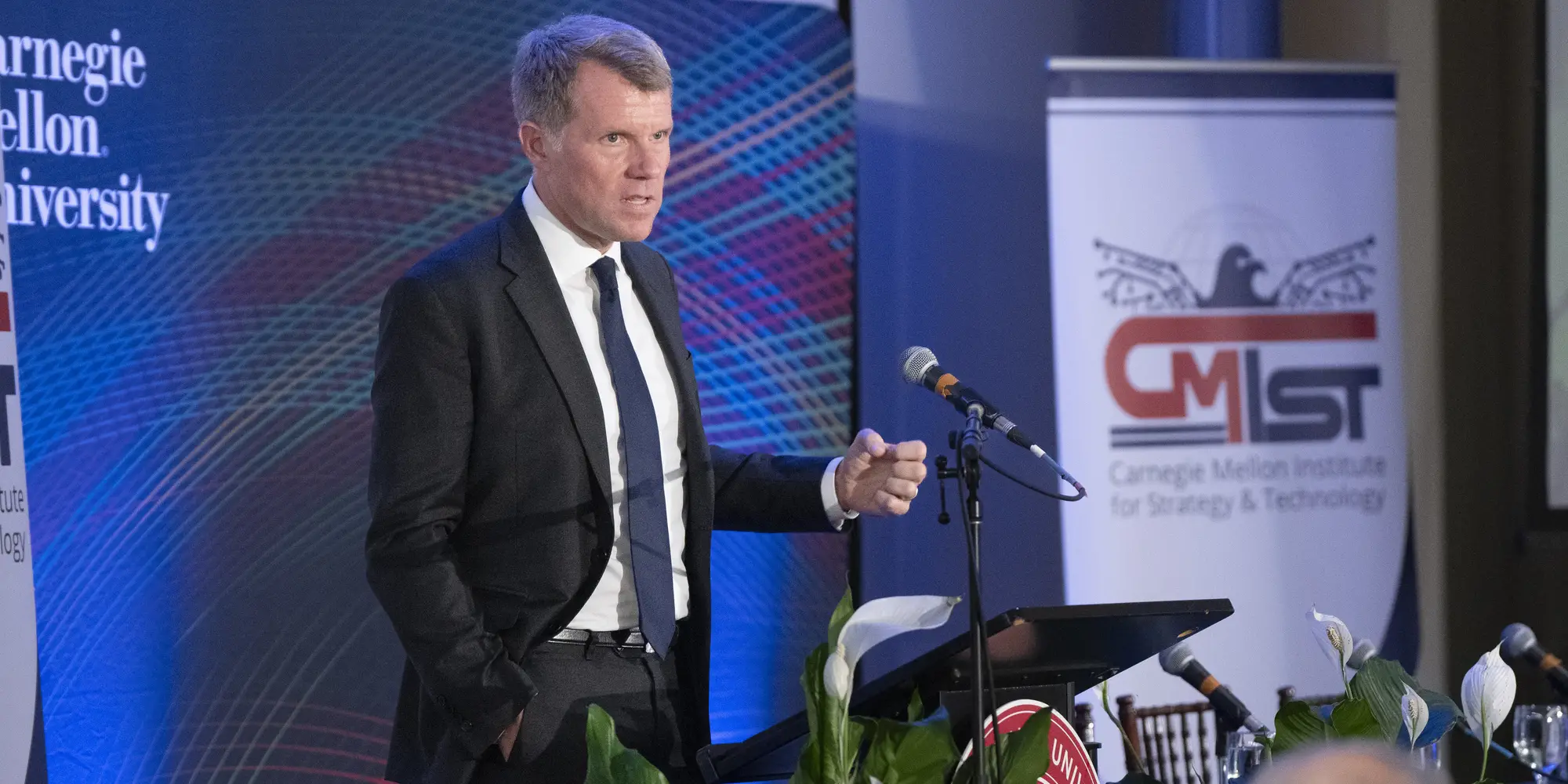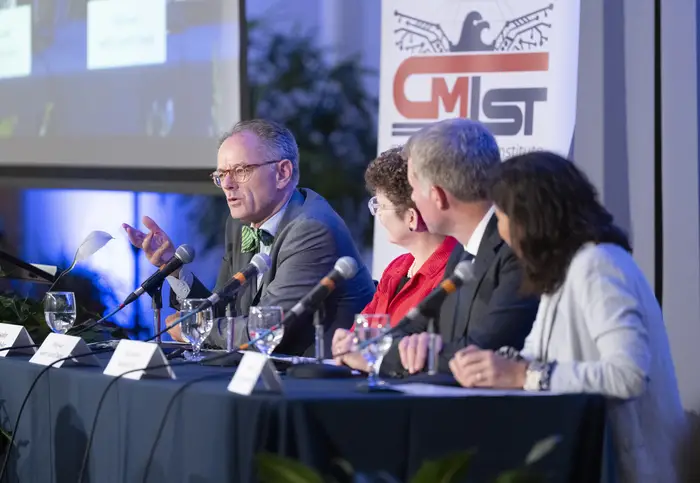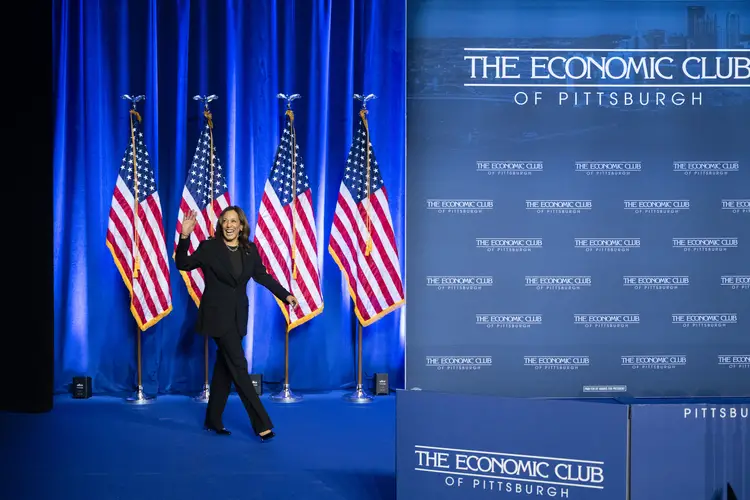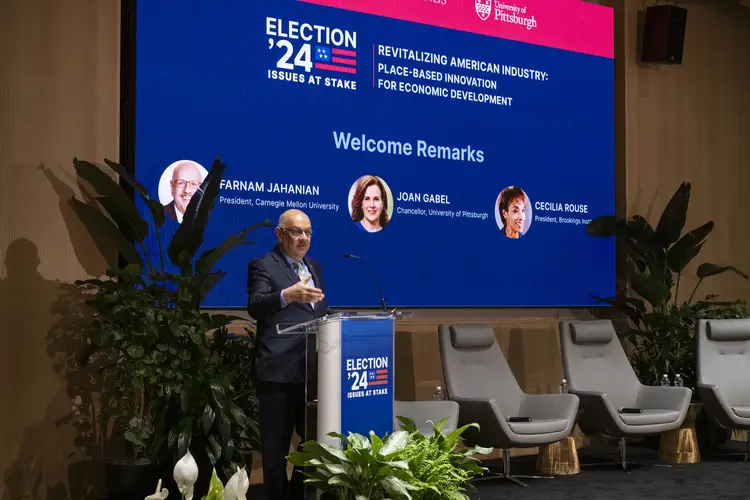
CMIST Policy Dinner Brings Diplomats to Pittsburgh To Discuss Digital Diplomacy
Media Inquiries
The Carnegie Mellon Institute for Strategy and Technology (CMIST), Carnegie Mellon University's home for political science and international relations, hosted a policy dinner on digital diplomacy, bringing diplomats from the United States, Costa Rica and Switzerland to Pittsburgh on Sept. 26.
Ambassadors Nathaniel Fick of the United States, Paula Bogantes Zamora of Costa Rica, and Benedikt Wechsler of Switzerland were part of a discussion exploring technology's pivotal role in international relations with CMIST director Audrey Kurth Cronin(opens in new window).
Fick, the inaugural U.S. ambassador at large for cyberspace and digital policy at the U.S. Department of State, was the keynote speaker. He emphasized the importance of digital solidarity, showcasing five case studies of global cybersecurity and AI governance.
Fick spoke about building secure and resilient digital ecosystems, citing CMU as an influential player.
“We have a pretty good lead at this point on the constituent ingredients of a successful tech ecosystem, and two of the most essential, of course, are education and a capable workforce. Carnegie Mellon obviously plays an absolutely central role in that, not only in Pittsburgh, but in the United States, and not only in the United States, but across our like-minded economies that are trying to work together to get things done in the world,” he said.
Fick also spoke at a student event that marked the successful completion of CMIST’s first year. He focused on pathways to public service reflected on his career journey, and emphasized that “life only looks linear in hindsight.” He urged students to pursue a career in public service as it is the “most important, meaningful work you can be doing right now.”
As ambassador, Fick works closely with allies and partners worldwide who have a shared commitment to values, such as Bogantes Zamora and Wechsler, the self-described best part of his job.
Lessons from Costa Rica and Switzerland
In a panel discussion, Bogantes Zamora, minister of the Ministry of Science, Innovation, Technology and Telecommunications for Costa Rica, explained how her country recovered from a 2022 ransomware attack on its government. She cited assistance from the United States and others as critical.
“(The attack was) a wake-up lesson for everybody, for all governments,” Bogantes Zamora said. “And it certainly was a hard lesson for us to learn.”
Wechsler, the head of Switzerland’s Division for Digitalisation, outlined his country’s digital governance strategy, emphasizing cybersecurity, sustainability and digital self-determination.
“We have an action field very much focused on sustainability because we're convinced that the digital technology and new technologies, they can probably give the critical contribution, also that we can save human life on the planet,” he said.
CMIST embraces new era
The dinner was the first major policy event for CMIST, which has been led by Cronin since 2023. The institute is an interdisciplinary program that examines emerging technologies' risks and benefits on critical challenges facing defense, intelligence and foreign affairs professionals.
“Our institute is committed to advancing the thoughtful development application and governance of emerging technologies that are shaping the future of war and peace. At the heart of its mission, CMIST bridges together the study of social sciences and policy,” Cronin said, “with Carnegie Mellon's cutting-edge advances in computer science and engineering, building on the innovative tech industry right here in Pittsburgh.”
At CMIST we are "looking to build bridges between Pittsburgh and Washington, making sure the university's technical prowess also impacts the policy side of the equation." Learn more here https://t.co/S4hhzIecm5
— CMIST (@cmist_cmu) September 30, 2024



